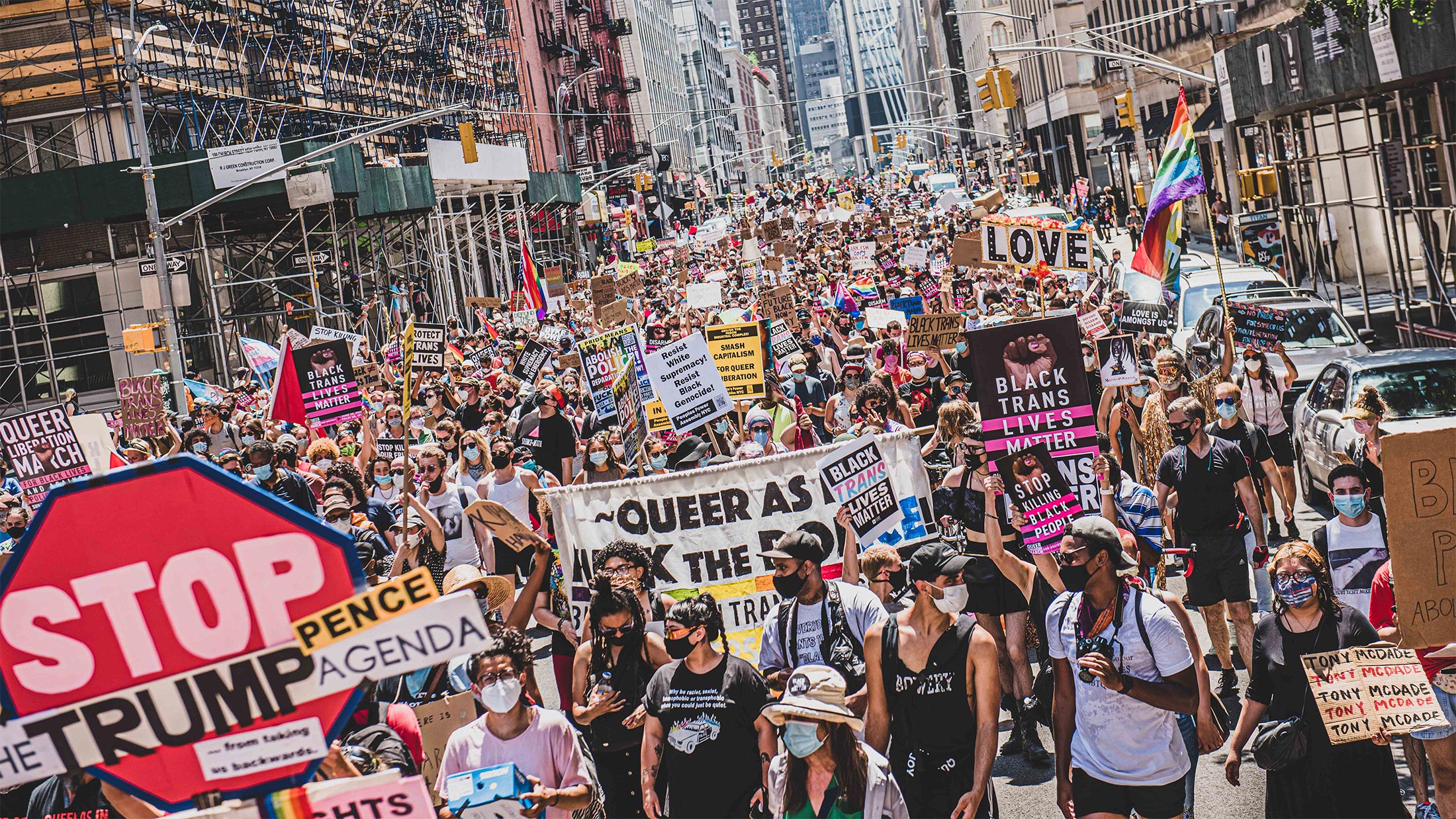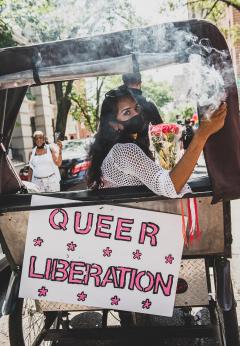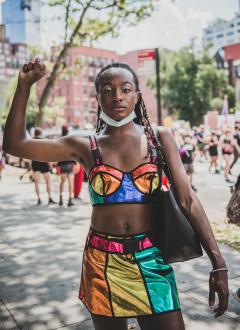The Queer Liberation March Strides On
Tens of thousands of participants are expected to join the Third Annual Queer Liberation March when it steps off in New York City’s Bryant Park on Sunday, June 27. And one of the event’s chief organizers, Ann Northrop ’70, says the celebration can serve as an antidote to the wave of repressive laws affecting members of the LGBTQ community across the country.
“Every national poll shows the people support us, but the politicians keep doing these horrible things,” Northrop said. “Our march is one way for us to educate and energize people. The more people we get out in the streets, the more pressure we can put on government to get things right.”

Launched in 2019 as an alternative to New York City’s annual World Pride march, which Northrop and others contend had become too commercial, the Queer Liberation March is “open to all—no registration, no tickets, no regimented formations, no corporate floats, no police contingents, no politicians grandstanding,” according to its website, reclaimpridenyc.org.

The event drew about 25,000 people in 2019 and nearly doubled that total last year, the COVID-19 pandemic notwithstanding. And while Northrop and her co-organizers are pleased with its success, they say it’s imperative for LGBTQ activists to join forces with the American Civil Liberties Union and other groups to push back against recently adopted state laws that curb the rights of transgender Americans.
“There are well over 100 of these proposals, so it’s a daily battle to fight against them,” she said. “One bill would create criminal penalties for doctors who treat transgender youth. Each bill that’s being proposed is worse than the last. Some of these laws are getting passed and in other cases we are succeeding, but we are not letting anything go unchallenged.”
Northrop said that while some battles are being won in the courts, she believes the ultimate solution is the passage of the Federal Equality Act, which would amend various civil rights laws to include protections based on sexual orientation and gender identity. Immediate prospects for success are dim, however. “It’s passed the House twice but doesn’t stand a chance in hell right now in the Senate, which is depressing,” she said. “But the silver lining is that with all the activity that’s going on, we’re getting lots of attention.”

Like Northrop, journalist, author and fellow alum Matthew Ortile ’14 says he too is cautiously optimistic, despite the current political climate in many parts of the country. “By nature, I’m an optimistic person,” said Ortile, managing editor of the award-winning literary magazine Catapult and author of The Groom Will Keep His Name, a series of essays about his life as a gay Filipino immigrant. “But I’d be lying if I said there weren’t days when I’m watching the news and finding myself losing hope.”
Ortile says his hope is often revived when he speaks to young people, including those on the Vassar campus. He said he was uplifted recently when he returned to Vassar to speak to members of the Asian Student Alliance. “A lot has changed since I was in school,” he said. “Students today are so much more galvanized and stand in solidarity with others on campus. It’s more of a community.”
Ortile said he believes the often-repressive political climate has actually spurred young people to become more active. “The students who are there today started their Vassar educations under Trump and saw what was happening,” he said. “Being on campus can make you feel isolated, but they are motivated to do things beyond Taylor Gate. They’re smart and kind and good, and they’re eager to build a community with those who look like themselves and those who do not.”